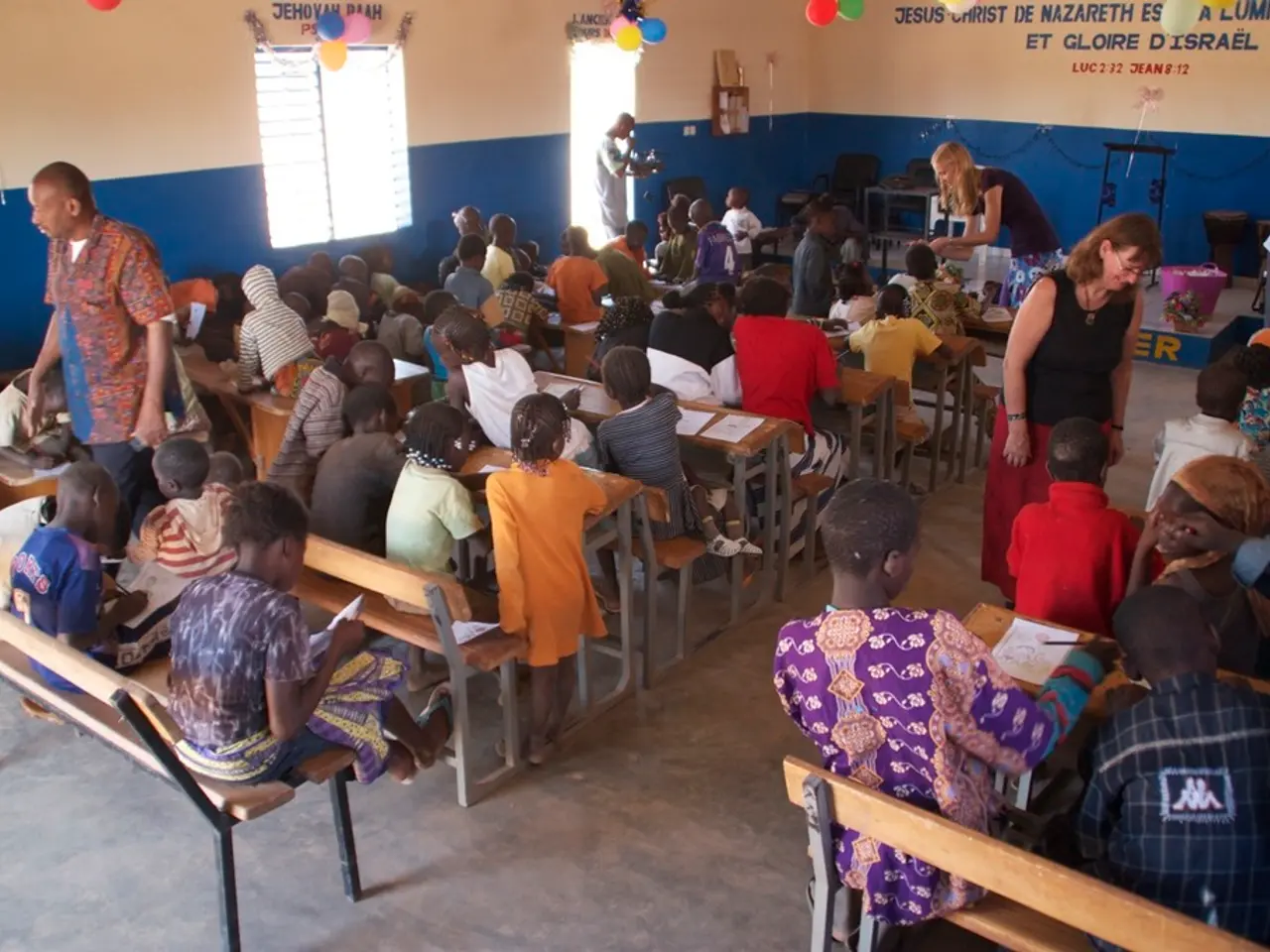Enhancing Combat Against Childhood Overweightness in UAE Through Nationwide Strategies
In the UAE, a significant focus is being placed on tackling obesity among children, with Dr. Hussain Abdul Rahman Al Rand, Assistant Under-Secretary for the Public Health Sector, leading the charge. He has emphasised the importance of this issue, highlighting it as a top priority.
To shape future health policies, the Ministry of Health and Prevention (MoHAP) is planning to utilise the data from the upcoming National Health and Nutrition Survey. This survey, set to provide critical data on obesity rates, will also aid in the development of future health policies.
The UAE is committed to using the data from the National Health and Nutrition Survey to build a healthier future. In line with this commitment, MoHAP is collaborating with various federal and Emirate-level bodies to implement school nutrition guidelines. These guidelines, developed with input from MoHAP, the Dubai Health Authority (DHA), the Department of Health – Abu Dhabi, Dubai Municipality, and the Ministry of Education, cover nutritional values, sustainable and safe food, and address allergies and dietary needs in schools.
While these efforts align with the World Health Organization’s (WHO) framework on obesity indicators, ongoing challenges include discrepancies across different entity guidelines, which affect the planning, implementation, and monitoring of school nutrition programs.
In September 2024, these school nutrition guidelines were reaffirmed in the media as part of a broader push toward healthier nutrition in UAE schools. Although the guidelines represent a key component of the national Nutrition Strategy, they are described as not fully comprehensive or part of a holistic school health and wellbeing program.
Despite a lack of direct recent mentions of new or specific programs launched in direct collaboration with the WHO in 2024 targeting childhood obesity, MoHAP’s continued work with governing bodies on school nutrition aligns with WHO standards for reducing childhood obesity indicators.
Other MoHAP recent initiatives focus on public health issues like newborn screening and organ donation programs but do not specifically address childhood obesity or WHO collaborations on that front within the available search data.
In summary, the UAE's current approach to childhood obesity in 2024 highlights multi-agency efforts to enforce school nutrition guidelines as a primary strategy, reflecting WHO frameworks but still evolving toward more integrated and comprehensive solutions. The UAE remains committed to using data from the National Health and Nutrition Survey to shape future health policies and build a healthier future for its children.
Read also:
- Explored the Popular Health Assessment with a Queue of 100,000 Aspiring Participants - Here's My Unadulterated Opinion
- Hearing impairment condition: Recognizing symptoms and management approaches
- Signs of Cataracts Emergence: Impact on Vision and Further Details
- Thyroid Cancer Type: Papillary (PTC) - Symptoms and Further Details





